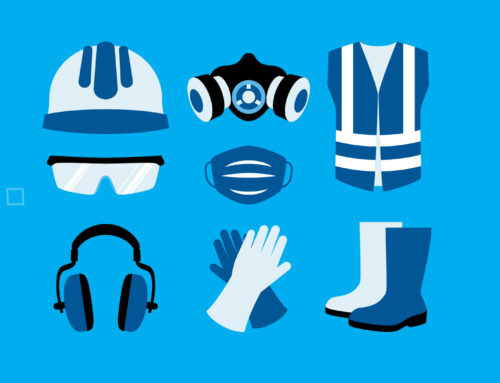With the cold weather upon us, now is the time to ensure your building and properties are prepared. Winter always brings specific risks like increased opportunities for property damage, high energy bills and even personal injury.
Take the time to prepare your affiliate, and you’ll be able to decrease risk this winter.
Preparing your Building for a Winter Storm
Throughout the winter season, it can be beneficial to refresh your memory on winter safety tips and actions to prepare your business. Implement these tips:
Communicate with your employees—Preparing your business for a winter disaster starts with having a predetermined way to communicate with all employees to let them know if the store or jobsite will resume business as usual.
Inform customers of business closures—If you will be not be opening or will be opening late, use social media channels to relay that information and post a sign notifying your customers of your closing as well.
Salt the walkways— If you plan to be open during a storm, salt the sidewalks and parking lot to prevent ice from forming and causing slippery situations. Don’t forget “wet floor” signage as snow and ice gets tracked into the store.
Keep an eye on powerlines—If you see a downed power line near your business, call 911 immediately and do not go near it, as it could still be live with electricity. Try to prevent other individuals from getting near it as well.
Check smoke and carbon monoxide detectors—Most people check their carbon monoxide and smoke detectors in the spring and fall at Daylight Saving Time, but it can be beneficial to check them in the winter too.
Saving Energy and Reducing Bills
If your energy costs soar as temperatures reach extreme highs and lows, try these tips:
Adjust thermostats
Businesses can waste tons of money by heating or cooling unoccupied space. By simply setting thermostats to a comfortable temperature during working hours and reducing the heat during off-hours, you may significantly reduce your energy bill. Plus, with smart thermostat systems, you can set this once rather than remembering to do so daily.
Replace HVAC filters
Regular HVAC maintenance not only keeps your systems operating at peak efficiency, which reduces energy bills, but it can also uncover small problems before they become expensive or dangerous. Consider setting up a schedule and reminders to regularly replace filters. This will help keep internal parts clean and ensure that a dirty filter doesn’t choke airflow.
Preventing Personal Injury
Winter weather can cause harm to your employees and customers. Share these tips to reduce the risk of injuries:
Shoveling Snow
If your employees shovel snow at your affiliate, use caution as shoveling can be dangerous. While shoveling may not seem more strenuous than running on a treadmill, it raises your blood pressure and heart rate more than other types of exercise. Shoveling also uses your arms, which is more taxing than work that requires your legs.
To prevent injury, follow these tips:
- Warm up your muscles before shoveling by doing some light movements and bending.
- Wear layers and remove them as you get warm.
- Choose an ergonomically designed shovel to help reduce the amount of bending you do. Plastic shovels are also lighter than metal shovels.
- Do not shovel after eating or while smoking. Stay hydrated as you shovel.
- Shovel only fresh, powdery snow, as wet snow is much heavier.
- Push the snow rather than lifting it. If you do lift it, use a small shovel or only partially fill the shovel. Always lift with your legs, not your back.
- Do not work to the point of exhaustion. Instead, try to keep up with the snow as it falls, or take breaks every 20-30 minutes.
- Know the signs of a heart attack and stop immediately and call 911 if you or someone else is experiencing any of them.
You may also consider hiring a snow removal service to avoid employee injury. It is also important that your business remove snow and ice because as a property owner, you are responsible for keeping public walking areas around your property clear.
Winter Emergency Safety Kits
It can be beneficial to store winter emergency safety kits in your home, car and business, and encourage others to do the same.
A good emergency kit includes:
- Hand-crank or battery charged radio
- Whistle or noisemaker that can be used to signal for help
- Water and food
- Copies of important business documents, all kept in a waterproof container
- Flashlights
- First-aid kit
- Extra toiletries and hand sanitizer
- Cellphone chargers
More information on winter emergency kits can be found on FEMA’s website.
Whether your affiliate receives a dusting of snow or several feet of snow each year, it pays to be prepared for winter weather.





